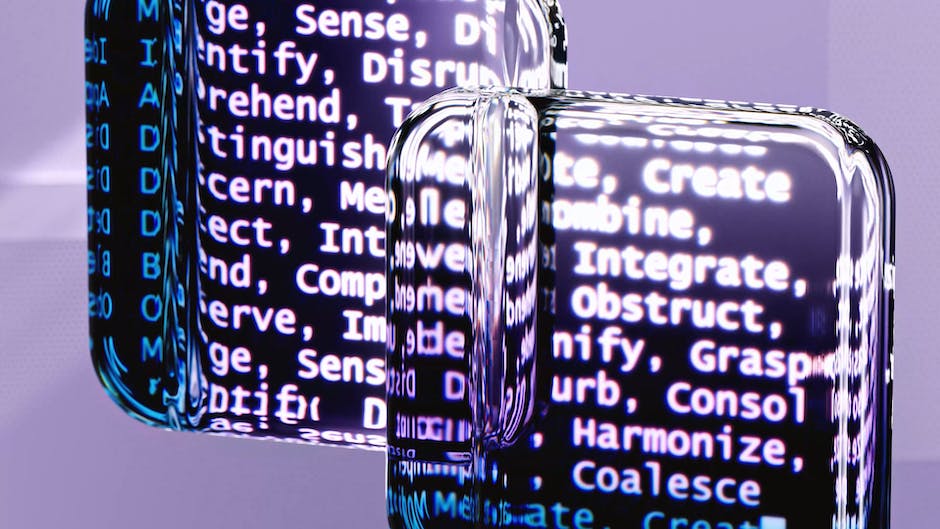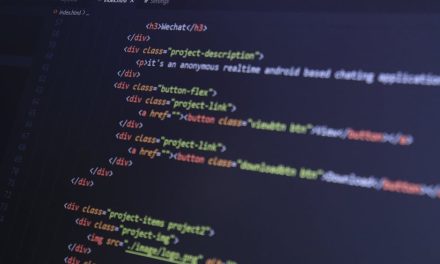Table of Contents
“Streamlining HR tasks with AI-powered chatbots: Real success stories from leading companies”
Introduction
Introduction:
HR chatbots have become increasingly popular in recent years as a way to streamline and enhance HR processes within organizations. These AI-powered tools can assist with tasks such as answering employee questions, providing information on company policies, and even conducting initial screenings for job candidates. In this article, we will explore real-life examples of companies that have successfully implemented HR chatbots to improve their HR processes.
Improving Employee Onboarding with HR Chatbots

In today’s fast-paced business environment, companies are constantly looking for ways to streamline their HR processes and improve employee experiences. One innovative solution that has gained popularity in recent years is the use of HR chatbots. These AI-powered virtual assistants are revolutionizing the way HR departments interact with employees, making processes more efficient and improving overall employee satisfaction.
One area where HR chatbots have proven to be particularly effective is in employee onboarding. The onboarding process is crucial for setting the tone for a new employee’s experience with a company. It is a time when new hires are learning about the company culture, policies, and procedures, and getting to know their colleagues. However, traditional onboarding processes can be time-consuming and overwhelming for both HR professionals and new employees.
HR chatbots can help streamline the onboarding process by providing new hires with instant access to information and resources. For example, a chatbot can answer common questions about company policies, benefits, and procedures, saving HR professionals time and ensuring that new employees have the information they need to get started. Chatbots can also guide new hires through the onboarding process, providing reminders and deadlines for completing required tasks.
One real-life example of a company that has successfully implemented HR chatbots to improve employee onboarding is IBM. The tech giant uses a chatbot named “Mya” to assist new hires with the onboarding process. Mya can answer questions about benefits, policies, and procedures, and provide personalized recommendations based on the employee’s role and location. By using Mya, IBM has been able to reduce the time and resources required for onboarding, while also improving the overall experience for new hires.
Another company that has seen success with HR chatbots in employee onboarding is Unilever. The consumer goods company uses a chatbot named “U-Chat” to help new hires navigate the onboarding process. U-Chat can provide information about company culture, values, and goals, as well as answer questions about benefits and policies. By using U-Chat, Unilever has been able to create a more engaging and interactive onboarding experience for new employees, leading to higher levels of satisfaction and retention.
Overall, HR chatbots have the potential to revolutionize the way companies approach employee onboarding. By providing instant access to information and resources, chatbots can streamline the onboarding process, making it more efficient and effective for both HR professionals and new hires. Real-life examples from companies like IBM and Unilever demonstrate the benefits of using HR chatbots to enhance employee onboarding and improve overall employee satisfaction. As more companies embrace this technology, we can expect to see even greater improvements in HR processes and employee experiences.
Streamlining Recruitment Processes with HR Chatbots
In today’s fast-paced business environment, companies are constantly looking for ways to streamline their HR processes to improve efficiency and productivity. One innovative solution that has gained popularity in recent years is the use of HR chatbots. These AI-powered virtual assistants are revolutionizing the way companies handle recruitment, onboarding, and employee engagement.
HR chatbots are designed to automate repetitive tasks and provide instant responses to common HR-related queries. By leveraging natural language processing and machine learning algorithms, these chatbots can interact with employees and job candidates in a conversational manner, making the HR process more user-friendly and efficient.
One real-life example of a company that has successfully implemented HR chatbots to streamline its recruitment processes is Unilever. The multinational consumer goods company uses a chatbot named Unabot to engage with job candidates and provide them with information about job openings, application status, and interview schedules. Unabot can also answer frequently asked questions about the company culture, benefits, and career development opportunities, saving HR professionals valuable time and resources.
Another company that has embraced HR chatbots is IBM. The technology giant uses a chatbot named Watson Recruitment to assist recruiters in sourcing, screening, and interviewing candidates. Watson Recruitment can analyze resumes, conduct pre-screening interviews, and recommend top candidates based on their skills and experience. This has significantly reduced the time and effort required to identify and hire qualified candidates, allowing IBM to fill positions faster and more efficiently.
HR chatbots are not only beneficial for large corporations but also for small and medium-sized businesses. One example is the online retailer Zappos, which uses a chatbot named Scout to assist job candidates in the application process. Scout can answer questions about job requirements, company policies, and benefits, as well as provide feedback on resumes and cover letters. This has helped Zappos attract top talent and improve the candidate experience, leading to higher retention rates and employee satisfaction.
Overall, HR chatbots have proven to be a valuable tool for enhancing recruitment processes and improving the overall HR experience for employees and job candidates. By automating routine tasks, providing instant responses, and offering personalized assistance, chatbots can help companies save time, reduce costs, and increase efficiency.
As technology continues to evolve, HR chatbots are expected to become even more sophisticated and versatile, offering new features and capabilities to further streamline HR processes. Companies that embrace this technology early on will have a competitive advantage in attracting and retaining top talent, as well as improving employee engagement and satisfaction.
In conclusion, HR chatbots are revolutionizing the way companies handle recruitment processes, making them more efficient, user-friendly, and personalized. Real-life examples from companies like Unilever, IBM, and Zappos demonstrate the benefits of using chatbots to automate tasks, provide instant responses, and improve the overall HR experience. As more companies adopt this technology, HR chatbots will continue to play a crucial role in shaping the future of HR processes and employee engagement.
Enhancing Employee Engagement through HR Chatbots
In today’s fast-paced business environment, companies are constantly looking for ways to streamline their HR processes and enhance employee engagement. One innovative solution that has gained popularity in recent years is the use of HR chatbots. These AI-powered virtual assistants are revolutionizing the way HR departments interact with employees, providing instant support and information on a wide range of HR-related topics.
HR chatbots are designed to handle routine HR tasks such as answering employee queries, providing information on company policies and procedures, and even assisting with the onboarding process. By automating these tasks, HR chatbots free up valuable time for HR professionals to focus on more strategic initiatives that can drive employee engagement and improve overall organizational performance.
Several companies have successfully implemented HR chatbots to enhance their HR processes and improve employee engagement. One such company is IBM, which developed an HR chatbot named “HR Assistant” to help employees with a variety of HR-related tasks. The chatbot is available 24/7 and can provide information on benefits, payroll, and other HR policies, making it easier for employees to access the information they need when they need it.
Another company that has seen success with HR chatbots is Unilever. The multinational consumer goods company implemented an HR chatbot named “U-Chat” to assist employees with HR queries and provide personalized support. The chatbot has been well-received by employees, who appreciate the convenience of being able to get quick answers to their HR-related questions without having to wait for a response from a human HR representative.
One of the key benefits of using HR chatbots is their ability to improve employee engagement by providing instant support and information. Employees no longer have to wait for HR to respond to their queries, which can lead to increased satisfaction and productivity. Additionally, HR chatbots can help employees feel more connected to the company by providing personalized support and guidance on a wide range of HR-related topics.
HR chatbots can also help companies save time and money by automating routine HR tasks. By handling repetitive tasks such as answering employee queries and providing information on company policies, HR chatbots free up HR professionals to focus on more strategic initiatives that can drive employee engagement and improve overall organizational performance.
In conclusion, HR chatbots are a valuable tool for enhancing HR processes and improving employee engagement. Companies like IBM and Unilever have successfully implemented HR chatbots to provide instant support and information to employees, leading to increased satisfaction and productivity. By automating routine HR tasks, HR chatbots free up HR professionals to focus on more strategic initiatives that can drive employee engagement and improve overall organizational performance. As more companies recognize the benefits of using HR chatbots, we can expect to see even greater innovation in this area in the years to come.
Automating HR Administrative Tasks with Chatbots
In today’s fast-paced business environment, companies are constantly looking for ways to streamline their processes and improve efficiency. One area that has seen significant advancements in recent years is human resources (HR) management. With the rise of artificial intelligence (AI) and chatbot technology, HR departments are now able to automate many of their administrative tasks, freeing up valuable time for more strategic initiatives.
HR chatbots are virtual assistants that use natural language processing (NLP) and machine learning algorithms to interact with employees and provide them with information and support. These chatbots can handle a wide range of tasks, from answering frequently asked questions to assisting with onboarding and training processes. By leveraging chatbot technology, companies can improve the employee experience, reduce the burden on HR staff, and increase overall productivity.
One real-life example of a company that has successfully implemented HR chatbots is IBM. The tech giant has developed an AI-powered chatbot named “HR Assistant” that helps employees with a variety of HR-related inquiries, such as benefits information, time-off requests, and policy questions. By using the chatbot, employees can quickly get the information they need without having to wait for a response from a human HR representative. This has helped to improve employee satisfaction and reduce the workload on HR staff.
Another company that has embraced HR chatbots is Unilever. The consumer goods company has implemented a chatbot named “U-Chat” that assists employees with HR processes, such as performance reviews, training programs, and career development opportunities. The chatbot is available 24/7 and can provide personalized recommendations based on the employee’s profile and preferences. This has helped to streamline HR processes and make them more accessible to employees, ultimately leading to higher engagement and retention rates.
By automating HR administrative tasks with chatbots, companies can also improve the accuracy and consistency of their processes. Chatbots are programmed to follow specific guidelines and protocols, ensuring that all employees receive the same information and support. This can help to reduce errors and discrepancies in HR processes, leading to a more efficient and reliable system overall.
Furthermore, HR chatbots can help companies save time and resources by handling routine tasks that would otherwise require human intervention. For example, chatbots can assist with scheduling interviews, sending out reminders for performance reviews, and collecting feedback from employees. By automating these tasks, HR departments can focus on more strategic initiatives, such as talent development, succession planning, and organizational culture initiatives.
In conclusion, HR chatbots have the potential to revolutionize the way companies manage their HR processes. By automating administrative tasks and providing employees with instant access to information and support, chatbots can improve efficiency, accuracy, and employee satisfaction. Real-life examples from companies like IBM and Unilever demonstrate the benefits of implementing chatbot technology in HR departments. As AI continues to advance, we can expect to see even more innovative uses of chatbots in the HR space, helping companies to stay competitive in a rapidly evolving business landscape.
Q&A
1. How can HR chatbots enhance HR processes?
HR chatbots can streamline communication, provide instant responses to employee inquiries, and automate repetitive tasks.
2. Can you provide a real-life example of a company using HR chatbots to enhance their HR processes?
Yes, IBM uses an HR chatbot named HR Assistant to help employees with HR-related questions and tasks, such as benefits enrollment and time-off requests.
3. What benefits can companies expect from implementing HR chatbots?
Companies can expect increased efficiency, improved employee satisfaction, reduced workload for HR staff, and cost savings from automating routine tasks.
4. Are there any potential challenges or drawbacks to using HR chatbots?
Some potential challenges include ensuring the chatbot is properly trained and updated, maintaining data privacy and security, and addressing any issues with employee trust in the technology.
Conclusion
In conclusion, implementing HR chatbots in companies has shown to enhance HR processes by streamlining communication, improving efficiency, and providing employees with quick access to information. Real-life company examples have demonstrated the effectiveness of HR chatbots in improving employee engagement, reducing administrative tasks, and increasing overall productivity. As technology continues to advance, integrating HR chatbots into HR processes will become increasingly important for companies looking to stay competitive and meet the evolving needs of their workforce.




